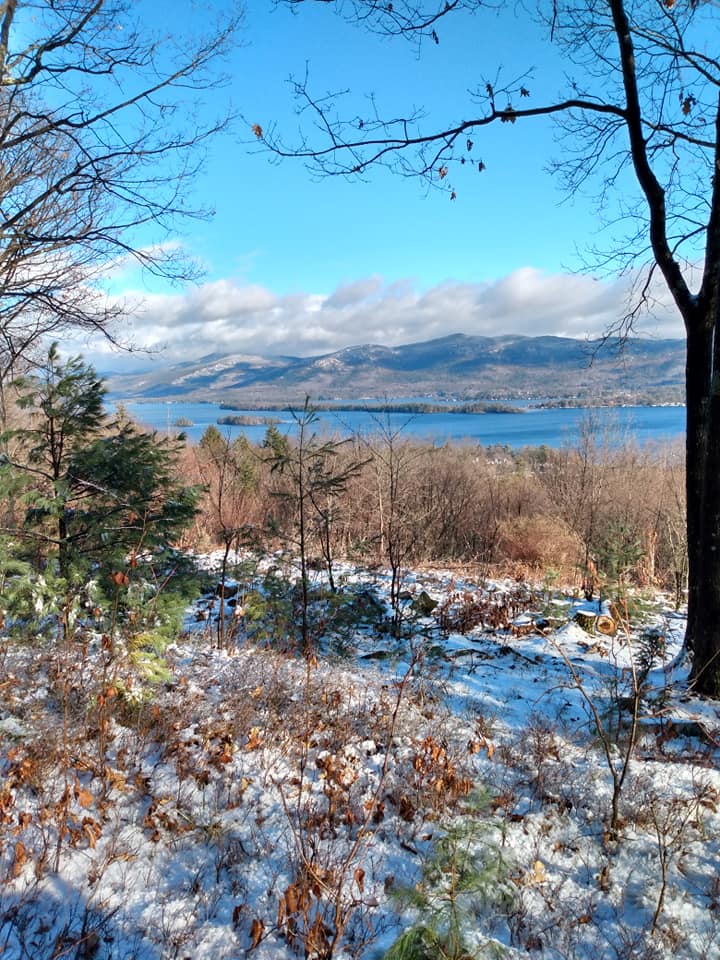
Winter Recreational Opportunities Available with Proper Preparation and Precautions
The early snow and cold weather are providing good conditions for winter outdoor recreation in the Adirondacks, Catskills, and other backcountry areas, New York State Department of Environmental Conservation (DEC) Commissioner Basil Seggos announced today. Visitors should be prepared with proper clothing and equipment for snow, ice, and cold to ensure a safe and enjoyable winter experience.
"With people still looking for outdoor activities during the pandemic, now is a great time to take advantage of all the winter recreation opportunities New York has to offer," Commissioner Seggos said. "However, winter conditions can also be dangerous if you're not prepared. Visitors exploring the backcountry should dress for the cold and use snowshoes and skis to navigate trails where appropriate."
Snow depths range greatly in the central and northeastern Adirondacks, with the deepest snows in the higher elevations like the High Peaks region and other mountains over 3,000 feet. Snow depths are thinner in the southeastern and northwestern Adirondacks. Much of the Catskill Mountains are covered in snow, with icy trail conditions.
DEC recommends visitors to the backcountry carry snowshoes and trekking poles and use them when snow depths warrant. Snowshoes or skis ease travel on snow and prevent "post-holing," which can ruin trails and cause sudden falls resulting in injuries. Crampons or other traction devices should be carried for use on icy portions of the trails including summits and other exposed areas. An ice ax may be necessary above treeline in the High Peaks. Forest Rangers strongly advise that current trail conditions will make travel without properly fitting traction devices extremely difficult. Check out DEC's website for further details on traction devices.
Some seasonal access roads remain road open, however, with the potential for lake effect snow, the use of four-wheel-drive vehicles is strongly recommended. Some seasonal access roads transitioned to snowmobile use once Northern Zone big game hunting season concluded. Check local club, county, and state webpages and resources, including the NYSSA Snowmobile Web map, for up-to-date snowmobile trail information.
Ice has begun forming on ponds, bays of lakes, slow-moving streams, and backwaters of rivers. No ice is safe at this time. Although ice may have snow on the surface, it is not thick enough to hold the weight of a person. Ice will remain unsafe until temperatures fall below freezing for a significant continuous period.
• Check the weather before entering the woods - if the weather is poor, postpone your trip.
• Be aware of weather conditions at all times - if the weather worsens, head out of the woods.
• Dress properly with layers of clothing of wool, fleece, and other materials that wick moisture (not cotton): a wool or fleece hat, gloves or mittens, wind/rain resistant outerwear, and winter boots.
• Carry a day pack with the following contents: Ice ax, plenty of food and water, extra clothing, map and compass, first-aid kit, flashlight/headlamp, sunglasses, sunblock protection, ensolite pads, stove and extra fuel, and bivy sack or space blankets.
• Carry plenty of food and water. Eat, drink, and rest often. Being tired, hungry, or dehydrated makes you more susceptible to hypothermia.
• Know the terrain and your physical capabilities - it takes more time and energy to travel through snow.
• Never travel alone and always inform someone of your intended route and return time.
Traveling through snow takes more energy and time than hiking the same distance, especially in freshly fallen snow. Plan trips accordingly. In an Emergency call 911. To request Forest Ranger assistance, call 518-408-5850, or in the Adirondacks, call 518-891-0235.
DEC's Adirondack Backcountry Information and Catskill Backcountry Information websites provide current trail conditions and other important information to help ensure a safe and enjoyable backcountry winter experience.
While enjoying outdoor spaces, please continue to PLAY SMART * PLAY SAFE * PLAY LOCAL and follow the Centers for Disease Control (CDC)/DOH guidelines for preventing the spread of colds, flu, and COVID-19.